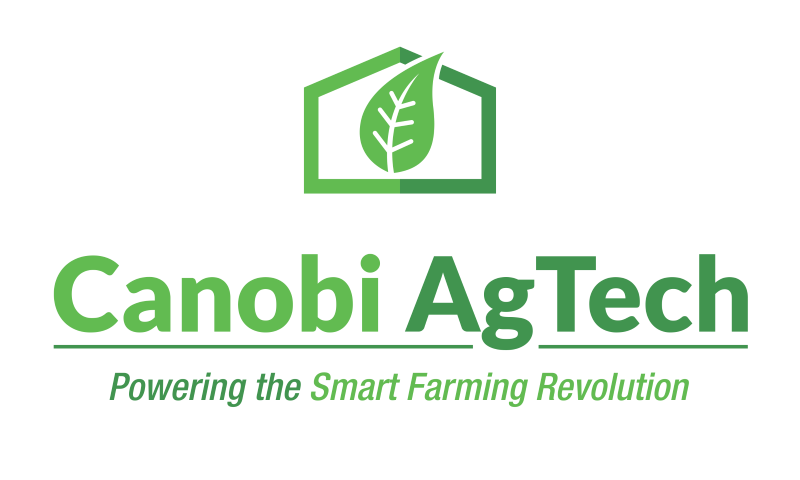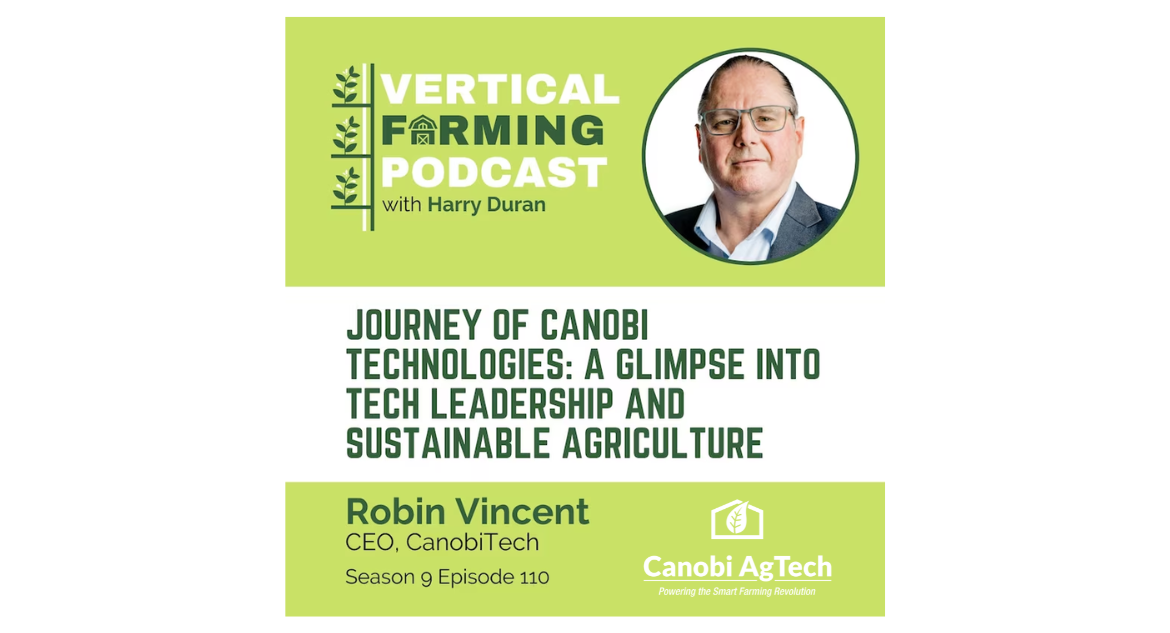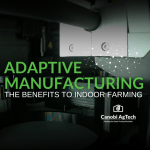In September of 2023, Robin was delighted to participate in an interview with Harry Duran on the Vertical Farming Podcast. The podcast, currently on its ninth season, began in March of 2020 and features conversations with innovators, CEOs, and other leaders in vertical farming. In the episode featuring Canobi AgTech, Robin and Harry explore a variety of topics, including the origin and growth of Canobi, the social and environmental impact of vertical farming, and the future of the industry.
The episode began with a discussion of how Robin’s background contributed to the foundation of Canobi. Robin explains how his love of tinkering was born in his father’s early computer business and has contributed to his hands-on leadership style at Canobi. The monitoring and automation system which would eventually come to be Canobi began from Robin’s efforts to improve ecological sustainability in the saltwater aquarium business. In 2014, Robin built his own small indoor farm out of his interest in local food production. At the same time, he built software for medical cannabis growers which helped them improve crop-over-crop efficiency.
It wasn’t until Covid-19 that the industry-wide shift toward food production also altered Canobi’s focus. Since then, Canobi’s new 2,500 square foot indoor farm has been growing a variety of crops to test Canobi’s systems and products. The decision of which crops to grow sometimes comes from employee-recommended suggestions, and sometimes from the desire for greater efficiency, the search for which plants can be successfully grown in combination, sharing the same growing parameters. An excellent example of this is Canobi’s partnership with Harvest Ai.
The explosion of interest in local food production and the food supply chain during Covid-19 has had a massive impact upon the vertical farming industry. Looking to the future, Robin sees plenty of potential for growth. One important aspect of expansion for the industry will be increasing the number of farmers. Robin points out a lack of education or training for those interested in learning about controlled environment agriculture (CEA) at colleges or universities in Canada. This is one reason why we founded our Canobi Academy, where anyone can learn the basics of indoor farming. Robin also noted the importance of conferences as networking opportunities and showcases for the newest innovations. Recently, Robin has spoken at Agra Middle East ’23 and GreenTech in Amsterdam. As indoor farming grows and evolves, the industry will produce many jobs and contribute to local financial ecosystems.
As Robin and Harry discuss, there have been plenty of innovations in indoor farming. The industry is improving on a variety of fronts. For example, grow lights such as those made by Canobi partners RadCorp or Grow the Jungle are far more energy efficient than previous iterations and produce less problematic heat. At the same time, research has improved the way growers use the lights, mimicking more gradual transitions between day-night cycles. AI innovations pioneered by companies such as our partner Harvest AI are changing the way growers harvest. Each of these advances have contributed to the significantly reduced environmental footprint of vertical farms. Canobi is proud to be driving these changes and working hand in hand with other companies who share our goals.
In its early days, indoor farming gained a poor reputation for inefficiency and unsustainability. Robin challenges those who doubted the viability of vertical farms to look at the huge advances which have been made in the technology. With innovations in alternative energy production, growing techniques, and component efficiency, we at Canobi believe that vertical farming is the future of food growth for populations around the globe.




